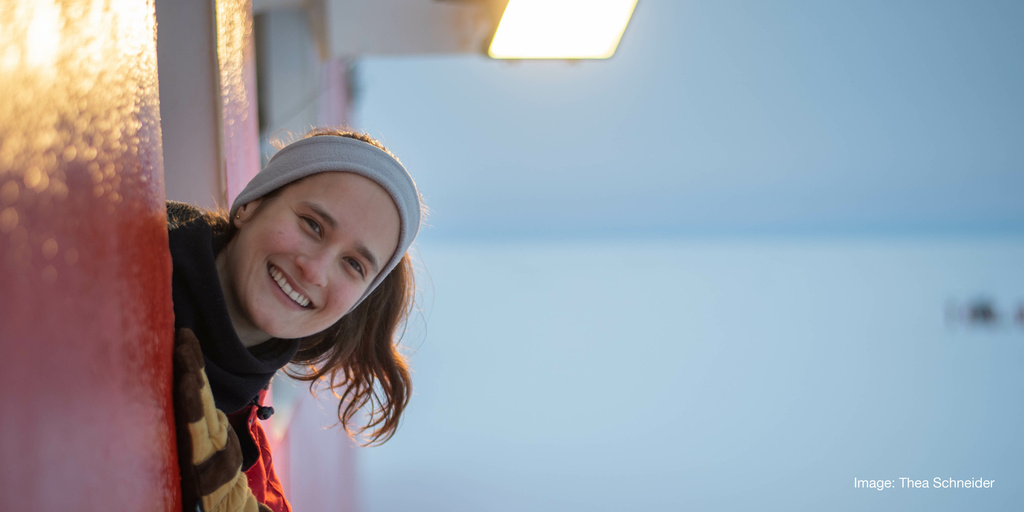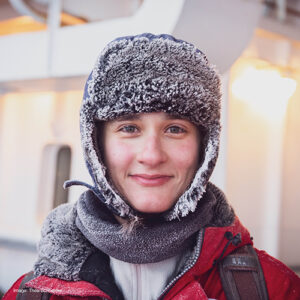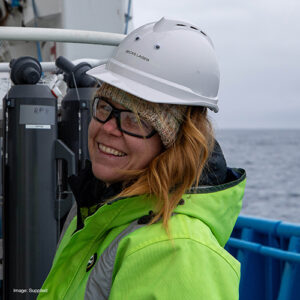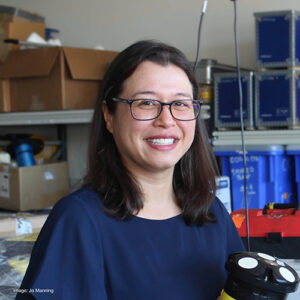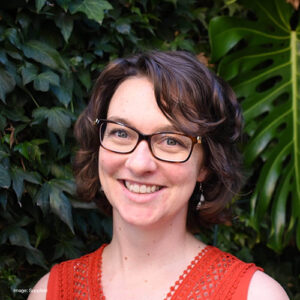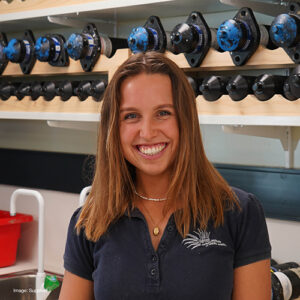The United Nations International Day of Women and Girls in Science is the 11th of February 2024, and we are celebrating some of our inspiring scientists at IMOS who are helping to undertake systematic, sustained and scientifically-robust observations of our vast and valuable marine estate.
We chatted to five women about their role in IMOS, what attracted them to pursue a career in science, the rewards, and advice they might have for girls and young women considering a career in STEM.
Dr Natalia Ribeiro Santos
Who are you, and what’s your role in IMOS?
I’m a coffee-loving oceanographer, with a PhD in making elephant seals tell me the secrets of ocean-ice shelf interactions. I am an IMOS Science Officer, and my role is to support the science delivery of the IMOS program. This includes ensuring science planning is optimal, data are used as widely as possible, and that relevant issues are well-researched to inform IMOS processes and decisions, including meeting data standards.
What drew you into the world of science?
I’ve always been fascinated by the natural world, especially the ocean. As a child, I was endlessly curious and had a passion for learning and writing. While I didn’t initially see myself as a scientist, my journey took me down unexpected paths, from teaching to sea exploration. Looking back, I realize that each decision I made was guided by a desire for happiness and fulfillment, ultimately leading me to where I am today.
What’s the best part about being a scientist?
The best part is constantly learning something new. In the past, being out on deck used to be my happy place. I would often be at sea on research and merchant vessels as a student, scientist and technician.
What would you say to young girls and women thinking about being a scientist?
Choosing the right mentor or supervisor is crucial in your journey as a scientist. Take the time to speak with previous mentees to ensure compatibility and support. Don’t underestimate the power of lifting other women along the way. We can achieve greater success if we actively choose to support each other.
Dr Rebecca Zitoun
Who are you and what is your role in IMOS?
I am Dr Rebecca Zitoun, working as a Science Engagement Officer at IMOS.
What drew you into the world of science?
I always loved spending time both at sea and in the ocean. My fascination with it, the excitement of discovering new things, and the challenge of solving complex problems naturally led me to become a marine scientist. Right now, I can honestly say I’m living my best life. Being able to make a positive impact on the health of our ocean through my work, and getting to teach and share the wonders of the ocean with others brings me a lot of joy and satisfaction.
What’s the best part about being a scientist?
As a marine scientist, you’re on the frontline, tackling real-world challenges that matter for society. This makes being a scientist incredibly rewarding and fulfilling. And being a marine scientist means wearing many hats! You’re not just a scientist; you’re a teacher, educator, science communicator, networker, administrator, engineer, and technician, among other things. On top of that, you juggle various tasks – from working in the lab and office to hopping on research vessels and getting hands-on in the field. It’s this mix of roles that keeps the job interesting and fun because you’re constantly learning something new.
What would you say to young girls and women thinking about being a scientist?
For young girls and women considering a career in science, my advice is simple: become a scientist and don’t let anyone dictate what you can or cannot do or achieve. You have the capability to pursue your passion and contribute to the exciting world of science. Embrace your curiosity, challenge stereotypes, and break through any barriers. Your potential is limitless, and the scientific community thrives when diverse voices and perspectives are included. So, go ahead and pursue your dreams in science with confidence and determination!
Dr Jessica Benthuysen
Who are you and what is your role in IMOS?
I am a physical oceanographer at the Australian Institute of Marine Science based in Perth. I chair the national committee for IMOS Event Based Sampling, in which we deploy ocean gliders in marine heatwaves and other extreme events.
What drew you into the world of science?
I was fascinated by the power of mathematics and physics to explain patterns in the environment.
What’s the best part about being a scientist?
I enjoy the wonder and excitement of discovery, sharing my findings, and the camaraderie of being part of a passionate science community.
What would you say to young girls and women thinking about being a scientist?
A mentor can make a huge difference into shaping your future and I encourage you to reach out to scientists whose work interests you.
Dr Kay Critchell
Who are you, and what’s your role in IMOS?
I’m a Lecturer of Oceanography at Deakin University, Victoria. I also run the Sensors on Temperate Merchant Vessels sub-Facility, which means I look after the automatic collection of data on board the Spirit of Tasmania as it goes about its activities through the Bass Strait.
What drew you into the world of science?
The unknown. There are so many things that we don’t understand about how the world works. As a scientist, we get to explore those unknowns and move our understanding forward tiny bits at a time.
What’s the best part about being a scientist?
The unknown! When you collect data and run an analysis, until you tell someone about what you have found, you are the only person in the whole world who knows that information. To me, that’s awesome.
What would you say to young girls and women thinking about being a scientist?
You won’t regret it. Even if you try it out and decide against pursuing a career as a scientist, your ways of thinking, problem-solving, and exploring the world will be a valuable addition to whatever you decide to do.
Emma Bowen
Who are you and what is your role in IMOS?
I’m the Facility Manager for the Acoustic Telemetry sub-Facility within IMOS Animal Tracking.
What drew you into the world of science?
I have always loved spending time at the beach and in the ocean, and from a pretty young age I wanted to work in a field that allowed me to make a positive impact on that environment. Marine science seemed like the best way to combine those two things!
What’s the best part about being a scientist?
There are lots of good things. One of the best would be helping others learn more about the marine environment with the data we collect, from all over the coastline and a wide range of species. Our team also gets to meet and learn from a diverse range of interesting people, working in the marine environment around the country. Last but not least, my fieldwork is in the ocean, which is pretty special.
What would you say to young girls and women thinking about being a scientist?
Go for it! Don’t be afraid to follow your interests or to connect with people who inspire you. You might end up going further than you think!
